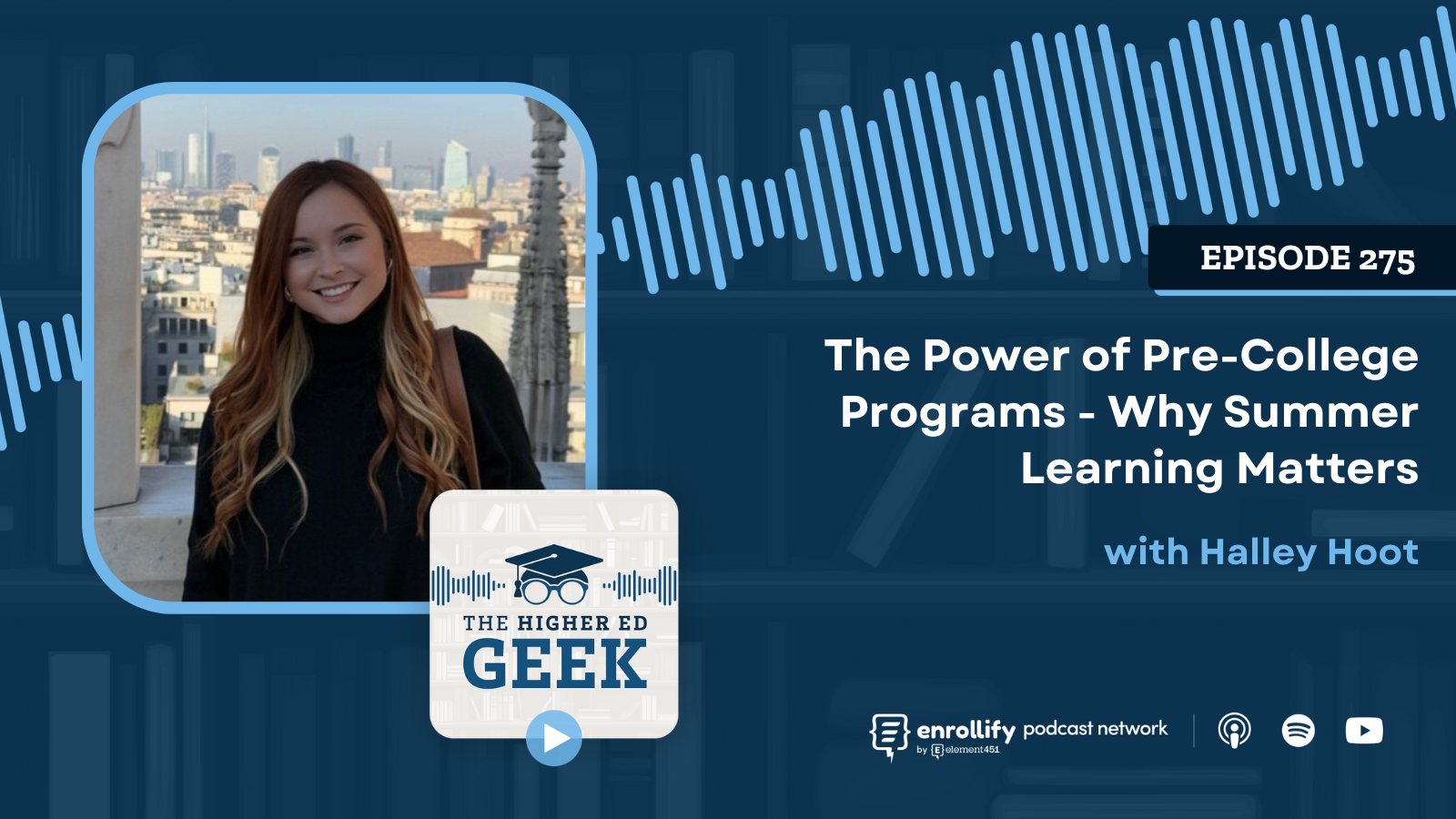About the Episode
About the Episode: Ryan Craig, managing director at Achieve Partners, joins us to discuss the transformative power of apprenticeships in reshaping the American workforce. Through an engaging conversation, Ryan unveils the concept of his recent book, "Apprentice Nation," which advocates for a significant expansion of apprenticeship programs as a solution to the skills and experience gaps plaguing the current job market. Highlighting the historical context and the need for a paradigm shift in education and employment, Ryan presents apprenticeships as a viable and necessary alternative to traditional college education.
Key Takeaways
- The Skills and Experience Gap is Widening: The shift to skills-focused hiring, coupled with automation and AI, is making entry-level jobs less accessible for recent graduates.
- Apprenticeships are a Proven Solution: Unlike internships, apprenticeships offer paid, structured, and experiential learning opportunities that prepare participants for long-term careers.
- The U.S. is Falling Behind: Compared to countries like the UK, Germany, and Australia, the U.S. significantly underfunds apprenticeship programs, leaving a massive gap in workforce preparation.
- Higher Education Must Adapt: Institutions need to integrate work-based learning, internships, and apprenticeships into their programs to remain relevant.
- Intermediaries are Key: Organizations that act as connectors between employers and educational institutions can help scale apprenticeship opportunities across industries.
Episode Summary
Why the U.S. Needs More Apprenticeships
Ryan Craig highlights the historical context of apprenticeships, explaining how the U.S. shifted from an apprentice-based workforce to a “college-for-all” mindset after World War II. While this model worked for decades, rising tuition costs and the evolving demands of the job market have made this approach unsustainable.
Today’s employers expect new hires to possess both technical skills and relevant work experience. The rise of AI and automation is likely to exacerbate this trend, further diminishing traditional entry-level job opportunities. Apprenticeships provide a viable solution, offering participants paid work and hands-on training while they gain in-demand skills.
Why the U.S. Lags Behind
The U.S. significantly underfunds apprenticeship programs compared to peer nations. For every dollar of public funding spent on apprenticeships, $50 is spent on traditional higher education. This lopsided investment creates a massive gap in the country’s workforce development infrastructure.
Craig also emphasizes the importance of intermediaries in scaling apprenticeship programs. In countries like Germany and the UK, chambers of commerce, industry associations, and private companies actively manage apprenticeship pipelines, making it easier for employers to participate. The U.S. lacks these intermediary networks, which stifles growth and accessibility.
How Higher Education Can Integrate Apprenticeships
Craig suggests that colleges and universities must evolve to meet the growing demand for work-integrated learning. Institutions can partner with apprenticeship intermediaries, design programs that embed hands-on experiences into degree tracks, and establish clear pathways from education to employment.
One inspiring example Craig mentions is Chipotle’s “earn-and-learn” model, which uses modular training programs to help employees transition from frontline roles to technical or managerial positions. Universities can replicate this model by creating hybrid programs that combine classroom learning with structured, paid work experience.
Building a Pathway to Success
An ideal future, as outlined in Apprentice Nation, would feature as many apprenticeship opportunities as there are college seats. Students should have equal access to apprenticeships and traditional degree programs, with clear pathways from high school to meaningful careers. Craig also envisions a system where colleges act as high-intervention intermediaries, actively connecting students with apprenticeship opportunities while providing relevant coursework to support their success.
Higher education is at a pivotal moment. Institutions must recognize the value of integrating apprenticeships and work-based learning into their programs to prepare students for a rapidly changing job market. By fostering partnerships with employers and leveraging intermediaries, colleges can ensure their graduates are equipped for long-term career success.
About the Show: The Higher Ed Geek Podcast explores the impact of edtech on the student experience by speaking with diverse leaders from institutions, companies, and nonprofit organizations. Each week we aim to provide an engaging, fun, and relevant dose of professional development that honors the wide range of work happening all across the higher ed ecosystem. Come geek out with us! The Higher Ed Geek Podcast is hosted by Dustin Ramsdell and is a proud member of the Enrollify Podcast Network.
Connect With Our Host:
Dustin Ramsdell
https://www.linkedin.com/in/dustinramsdell/
https://twitter.com/HigherEd_Geek
About The Enrollify Podcast Network:
The Higher Ed Geek is a part of the Enrollify Podcast Network. If you like this podcast, chances are you’ll like other Enrollify shows too!
Some of our favorites include Generation AI and I Wanna Work There.
Enrollify is made possible by Element451 — the next-generation AI student engagement platform helping institutions create meaningful and personalized interactions with students. Learn more at element451.com.
Connect with Us at the Engage Summit:
Exciting news — Dustin will be at the 2024 Engage Summit in Raleigh, NC, on June 25 and 26, and we’d love to meet you there! Sessions will focus on cutting-edge AI applications that are reshaping student outreach, enhancing staff productivity, and offering deep insights into ROI.
Use the discount code Enrollify50 at checkout, and you can register for just $200.
Learn more and register at engage.element451.com — we can’t wait to see you there!















